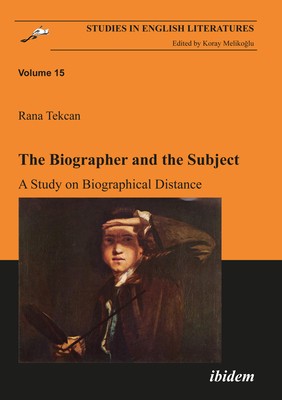
- We will send in 10–14 business days.
- Author: Rana Tekcan
- Publisher: Ibidem Press
- ISBN-10: 389821995X
- ISBN-13: 9783898219952
- Format: 14.8 x 21 x 1 cm, minkšti viršeliai
- Language: English
- SAVE -10% with code: EXTRA
Reviews
Description
A good biography is a well-staged illusion. It creates--on paper--a vivid, rounded, and immediate sense of lived life. In contrast to purely fictional forms, biography writing does not allow total freedom to the biographer in the creative act. Ideally, a biography's backbone is formed by accurate historical facts. But its soul lies elsewhere. Since the concern is life, something more is needed: Nothing dry, cold or dead, but a vibrant impression of life that is left in the air after one turns over the last page. But how does a biographer do it? The way a biographer creates a subject is largely dictated by the historical distance between them. There are three types of distance in biographical writing: First, where the biographer and the subject personally know one another; second, where the biographer is a near contemporary of the subject; and third, where biographer and subject are distinctly separated, in some cases by hundreds of years. Tekcan explores how some of the most accomplished biographers manage to "recreate life" across time and space. She closely examines Samuel Johnson's "Life of Mr. Richard Savage", James Boswell's "Life of Samuel Johnson", Lytton Strachey's "Eminent Victorians", Michael Holroyd's "Lytton Strachey", Park Honan's "Jane Austen", and Andrew Motion's "Keats".
EXTRA 10 % discount with code: EXTRA
The promotion ends in 23d.00:15:43
The discount code is valid when purchasing from 10 €. Discounts do not stack.
- Author: Rana Tekcan
- Publisher: Ibidem Press
- ISBN-10: 389821995X
- ISBN-13: 9783898219952
- Format: 14.8 x 21 x 1 cm, minkšti viršeliai
- Language: English English
A good biography is a well-staged illusion. It creates--on paper--a vivid, rounded, and immediate sense of lived life. In contrast to purely fictional forms, biography writing does not allow total freedom to the biographer in the creative act. Ideally, a biography's backbone is formed by accurate historical facts. But its soul lies elsewhere. Since the concern is life, something more is needed: Nothing dry, cold or dead, but a vibrant impression of life that is left in the air after one turns over the last page. But how does a biographer do it? The way a biographer creates a subject is largely dictated by the historical distance between them. There are three types of distance in biographical writing: First, where the biographer and the subject personally know one another; second, where the biographer is a near contemporary of the subject; and third, where biographer and subject are distinctly separated, in some cases by hundreds of years. Tekcan explores how some of the most accomplished biographers manage to "recreate life" across time and space. She closely examines Samuel Johnson's "Life of Mr. Richard Savage", James Boswell's "Life of Samuel Johnson", Lytton Strachey's "Eminent Victorians", Michael Holroyd's "Lytton Strachey", Park Honan's "Jane Austen", and Andrew Motion's "Keats".


Reviews